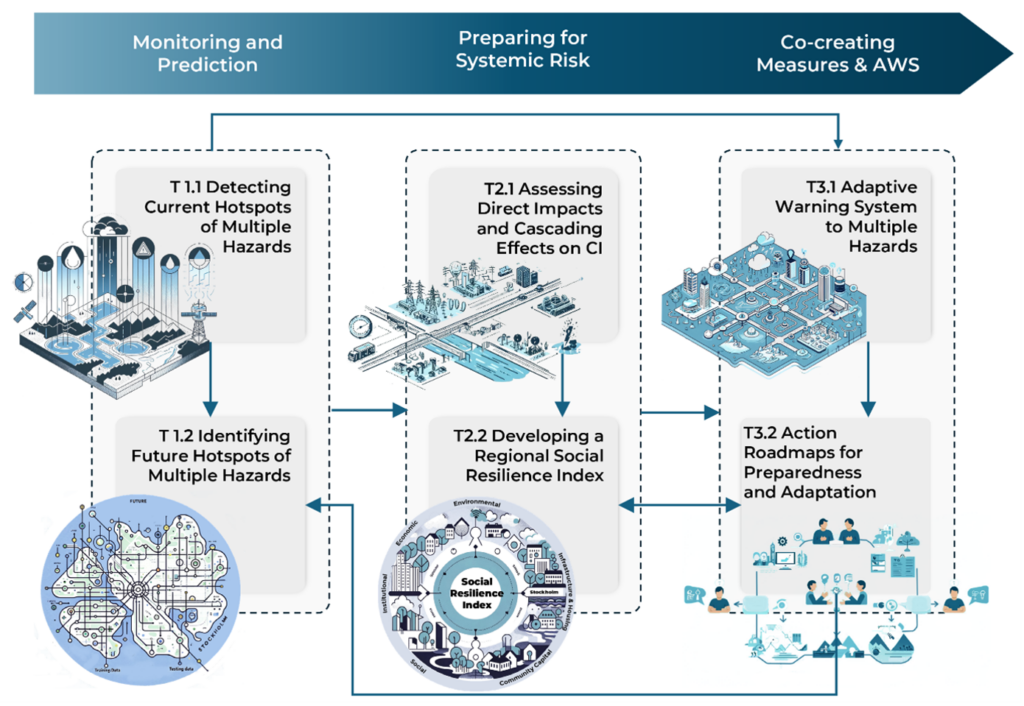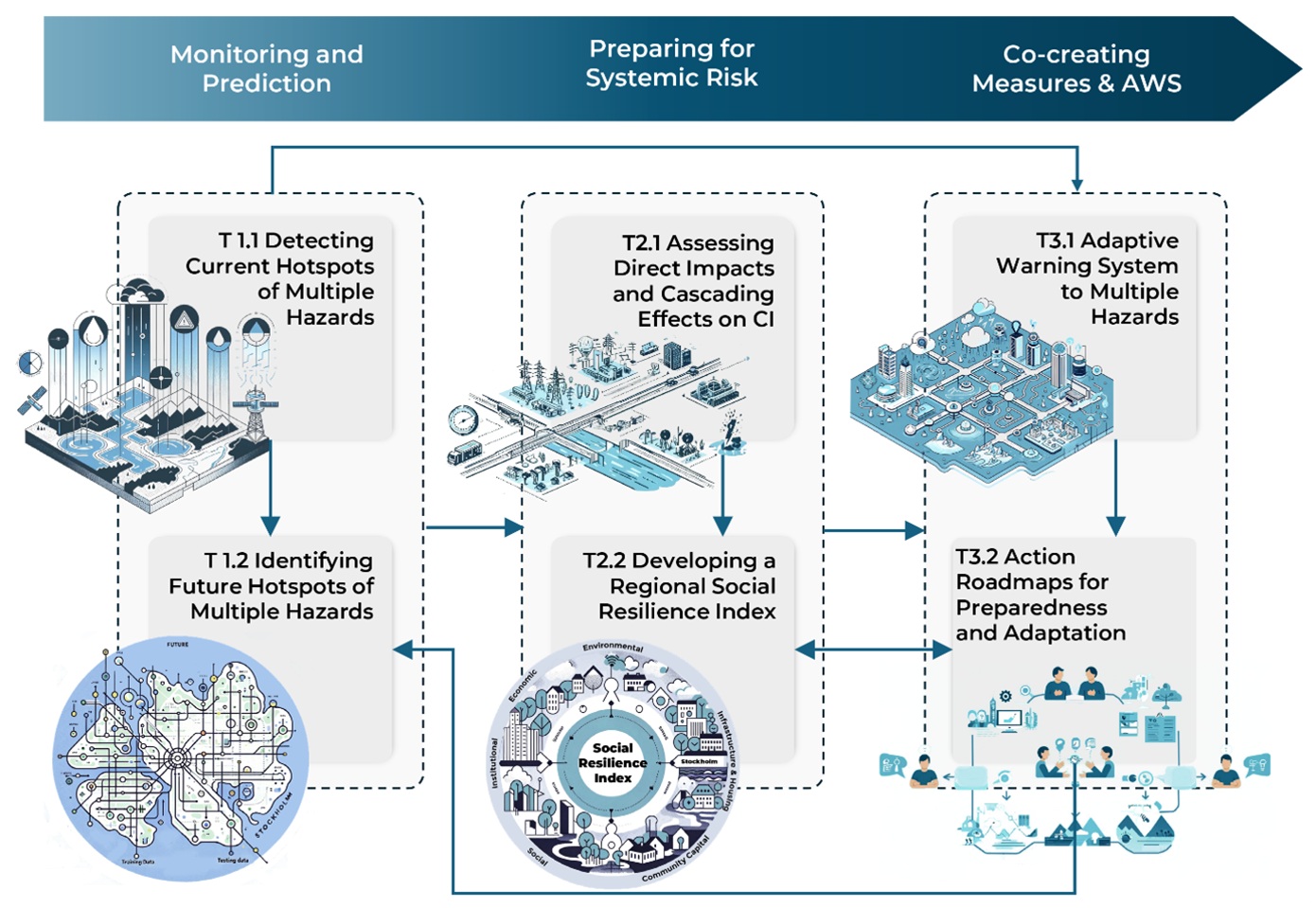About the project
Objective
The project aims to enhance the resilience and preparedness of Stockholm against multiple hydrometeorological hazards, primarily flooding, droughts, and heatwaves, by developing innovative monitoring systems, assessing systemic risks, and co-creating adaptive warning systems and action roadmaps with stakeholders.

Background
Urban areas are increasingly vulnerable to hydrometeorological hazards, which are growing in frequency and severity due to climate change and urbanization. These events pose significant risks to Critical Societal Services and Infrastructure (CSSIs), including transport, water, and energy systems. Traditional risk analyses often focus on single hazards and overlook cascading impacts across interconnected systems. CASCADE addresses this gap by integrating advanced AI-based prediction models, network analysis, and stakeholder-driven approaches to build a comprehensive framework for disaster preparedness and climate adaptation.
Cross-disciplinary collaboration
CASCADE brings together expertise from KTH Royal Institute of Technology, the City of Stockholm, and RISE. The collaboration integrates environmental and water engineering, computer science, systems analysis, and urban planning with practical municipal and industry perspectives. This transdisciplinary partnership ensures that solutions are scientifically rigorous, technologically advanced, and practically applicable.





